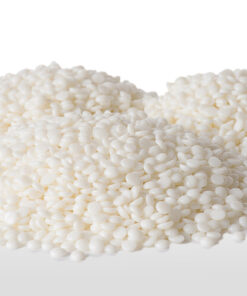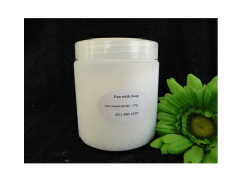-
×
 Cappuccino Fragrance Oil - 50ml
1 × R63,80
Cappuccino Fragrance Oil - 50ml
1 × R63,80
Cetyl Stearyl Alcohol (CSA) – 20kg
R3191,85
Cetyl Stearyl Alcohol (CSA) – 20kg – It is known to serve multiple functions in skincare and haircare formulations due to its many unique properties.
1 in stock
SKU: FWS110209
Categories: Bulk Sales, Emulsifiers
Tags: 20kg, alcohol, cetyl, csa, emulsifiers, stearyl
Cetyl Stearyl Alcohol (CSA) – 20kg
Cetyl Stearyl Alcohol (CSA) is a versatile fatty alcohol blend composed of cetyl alcohol and stearyl alcohol. Sourced from natural plant oils, such as coconut or palm oil, it is widely used in skincare, haircare, and cosmetic formulations. This ingredient provides multiple benefits, including hydration, enhanced texture, and long-lasting stability.
Key Features Cetyl Stearyl Alcohol (CSA)
-
Fatty Alcohol Blend: A natural mixture of cetyl alcohol and stearyl alcohol, derived from coconut or palm oil. It delivers a range of benefits for both skincare and haircare formulations.
-
Emollient Properties: Acts as an emollient, softening and moisturizing skin and hair. It is an essential ingredient in creams, lotions, and conditioners to improve hydration.
-
Emulsifier: Effectively blends oil and water-based ingredients, ensuring stable and uniform formulations. This makes it a key component in the creation of creams and lotions.
-
Thickening Agent: Provides the desired texture and consistency for cosmetic products. It enhances the feel and usability of various formulations.
-
Stabilizer: Prevents product separation over time, ensuring long-term stability and effectiveness in emulsions, lotions, and creams.
Common Uses
-
Skincare: Widely used in moisturizers, creams, and lotions to enhance hydration and provide a luxurious texture.
-
Haircare: A crucial ingredient in conditioners and hair masks to soften, detangle, and improve hair manageability.
-
Emulsions: Essential for creating stable emulsions by blending oil and water seamlessly in creams and lotions.
-
Cosmetics: Frequently used in makeup products like foundations, lipsticks, and makeup removers to enhance texture and performance.
Benefits
-
Moisturization: Helps lock in moisture, leaving both skin and hair feeling soft, smooth, and hydrated.
-
Improved Texture: Creates smoother, more luxurious-feeling products upon application.
-
Enhanced Stability: Contributes to the stability and longevity of emulsions, preventing separation.
-
Efficient Emulsifying: Plays a critical role in producing consistent and effective formulations by emulsifying oil and water-based ingredients.
Usage Notes Cetyl Stearyl Alcohol (CSA)
Cetyl Stearyl Alcohol (CSA) is generally considered safe for use in cosmetic formulations when used as directed. It is non-irritating for most individuals, though those with sensitive skin should perform a patch test or consult a dermatologist before use.
Cetyl Stearyl Alcohol is a must-have ingredient for creating moisturized, luxurious, and stable cosmetic products. Whether you are formulating skincare, haircare, or cosmetic products, its versatile properties make it an essential ingredient for your next formulation.
| Weight | 21 kg |
|---|---|
| Dimensions | 45 × 30 × 30 cm |










